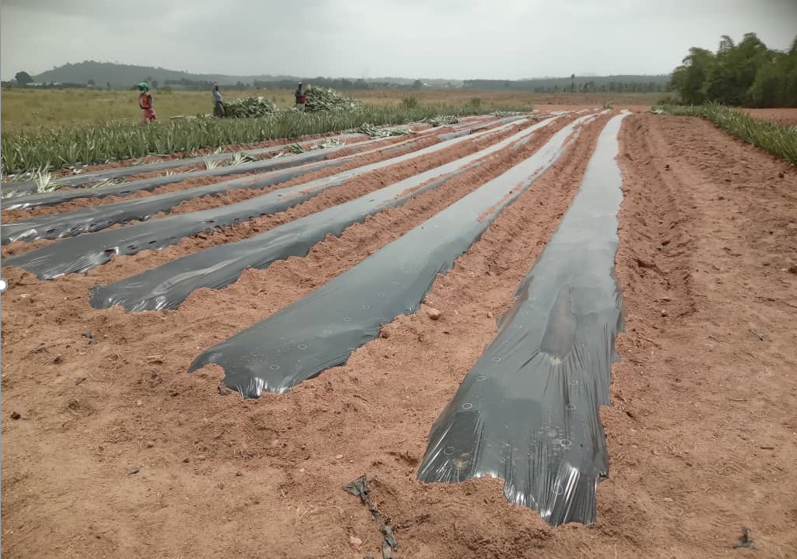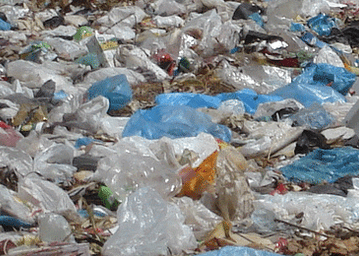
By Joshua AMLANU
To stem the growing environmental and economic costs of plastic pollution, there is an urgent need for radical change in the nation’s approach to plastic waste management – through a cultural mindset shift, tighter policies and greater private sector involvement.
Speakers at the 2025 Environmental Sustainability Summit agreed that the country’s ability to end plastic waste will hinge not on bold policy statements but closing enforcement gaps, improving coordination and fostering a national culture that sees plastic not as a nuisance but an opportunity.
Organised by Business and Financial Times under the theme ‘Ending Plastic Waste in Ghana: A Sustainable Future for All’, the summit brought together policymakers, academics, civil society and entrepreneurs to discuss solutions for the country’s mounting waste challenge.
The country generates over 1.1 million tonnes of plastic waste annually – more than half of which remains uncollected – while only nine percent is recycled. The environmental toll is enormous: choked drains, polluted water-bodies and coastal degradation. The economic cost is estimated at US$6billion annually, equivalent to 11 percent of GDP according to Environment Minister Dr. Murtala Muhammed.
Dr. Muhammed outlined a government-led strategy to phase out single-use plastics such as straws and sachets, taking cues from successful bans in Rwanda and Kenya.
He said the state is piloting buy-back schemes and community-based recycling centres, with recycled plastics already being used in school building projects and road surfacing.
A major recycling park near Accra is also in the works, expected to be funded through public-private partnerships aimed at narrowing the US$2.4billion financing gap in Ghana’s circular economy ambitions.
“We cannot bequeath to our children mountains of plastic waste,” the minister said.
He urged Ghanaians to view plastic not as disposable litter but an economic resource, arguing that effective circular practices could increase GDP by 1.9 percent by 2030 and create over 60,000 green jobs. Plans are also underway to establish a national Circular Hub, modelled on the Netherlands’ system, to institutionalise collaboration across government, academia and industry.
Nonetheless, implementation remains a major concern.
Prof. Chris Gordon-University of Ghana pointed to a persistent disconnect between academic research and policy design.
“We speak different languages,” he said, warning that the lack of coordination undermines evidence-based policymaking.
He criticised the use of unverified statistics – such as claims that Accra alone uses 30 million plastic sachets daily – and urged stronger data governance.
Prof. Gordon called for the creation of “knowledge brokers” to help translate academic findings into actionable policies.
To achieve long-term change, he called for interdisciplinary programmes that bridge the social and natural sciences and embed sustainability in the national curriculum.
Representing youth voices, Nana Akosua Korang Agyare of Thinking Minds Ghana said grassroots innovations are often underfunded and overlooked.
“There’s a lack of visibility and support for what we do,” she said, advocating targetted policies that reflect the unique needs of each region. For example, Greater Accra’s urban waste issues differ significantly from rural or coastal regions.
Ms. Agyare urged policymakers to use traditional storytelling and cultural narratives as tools to change behaviour and to favour incentives over punishment.
“Penalties alone won’t drive change. People need to see value in doing the right thing,” she said.
Dr. Eric Boachie Yiadom, lead consultant at Green Vista, spotlighted global business models like Plastic Bank that have turned waste collection into profitable ventures.
He blamed a lack of tax incentives and inconsistent data for weak investor confidence in Ghana’s recycling sector.
Dr. Yiadom called for a dual strategy: decentralised waste collection systems coupled with centralised data management to track and support progress. He warned that current waste segregation efforts often fail due to absence of convenient drop-off points for households.
Across the board, speakers agreed that changing consumer habits is central to tackling the crisis. Suggestions ranged from embedding sustainability in school curricula and reviving monthly National Sanitation Days to offering tax relief for producers of biodegradable packaging and creating storytelling campaigns that frame plastics as valuable inputs, not rubbish.
While government has introduced a National Plastics Management Policy and is preparing to roll out Extended Producer Responsibility legislation, enforcement remains patchy.
The post Mindset-shift needed as plastic waste crisis deepens appeared first on The Business & Financial Times.
Read Full Story



















Facebook
Twitter
Pinterest
Instagram
Google+
YouTube
LinkedIn
RSS